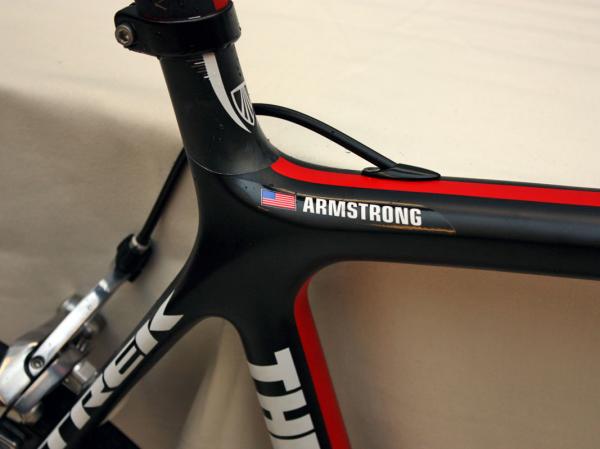After a bit of confusion wherein companies scrambled to do the math, trying to figure out if abandoning Lance Armstrong meant advocating cancer or something, Nike and now Trek have finally turned their back on Armstrong.
While it was certainly wise of all companies involved to verify the douchbaggery of Mr. Armstrong before taking action, there still seemed to be a delayed reaction when it came to severing ties.
If anything, it took former teammate of Armstrong, Paul Willerton, and a small group of protestors showing up at Nike’s corporate office in Beaverton, Oregon to help corporate America separate Armstrong from Livestrong. Cyclingnews.com quoted Willerton as saying:
To be fair to athletics we have to look at Lance the person and the athlete and deal with that, without letting everyone say the magic word and pull that cancer cloak over it. I feel that they are mutually exclusive, that just because you support one doesn’t mean that you have to support the other. Nike could make a strong move right now by dumping Lance Armstrong, even if they still need to continue paying LAF.”
And so they did. Nearly all of the sponsors are gone.
More complicated is the relationship Armstrong has among cancer survivors around the world, for whom his status as both a hero and a source of hope is very real. The most disturbing aspect of Armstrong’s fall for grace may be the debilitating effect it has on some of his most dedicated fans–cancer survivors every bit as impressive as Armstrong, but people who found in him a sense of not just hope, but community.
As Steve Madden, former editor of Bicycling pretty eloquently explained, there was a lot of inertia to just accepting Armstrong for years, pinching our noses harder and harder the more the situation seemed to stink, because, well, there was a good cause going on.
But really it’s time to take Lance as his word. I’d always thought he seemed like an OK enough guy–um, doping and cheating and lying and apparently threatening aside–except for the false modesty. To be sure, everything Lance was always Lance, and everything Livestrong was always Lance. And he, more than anyone, took great pains to make sure it stayed that way.
But now it can’t. If there’s a moral to this story, it has little to do with doping and honesty and sports, and everything to do with the Problem of Celebrity. It’s unfortunate that we tend to need somebody like the mythical, imaginary Lance Armstrong. There seemed to be a sense of weightlessness over the past few weeks, as the Livestrong network collectively pondered an existence without Lance at the center of the universe. I was particularly disgusted by Livestrong ads running on Facebook that were very conspicuously worded to combine strong ideas of “support” and “standing up for” with relatively vague objects of that support. The obvious effect was of rallying behind Lance.
Make no mistake, for all the good it did, Livestrong was also a tool in Armstrong’s campaign of deceit and self-promotion. The real question was could it exist without him.
For now looks like it can–thanks to a whole lot of amazing people who might never be celebrities, but who are ultimately far better individuals than Lance Armstrong.


